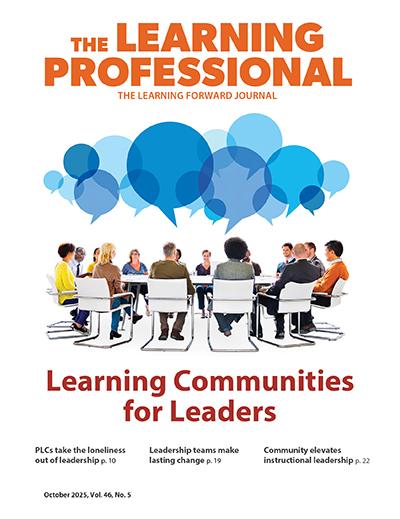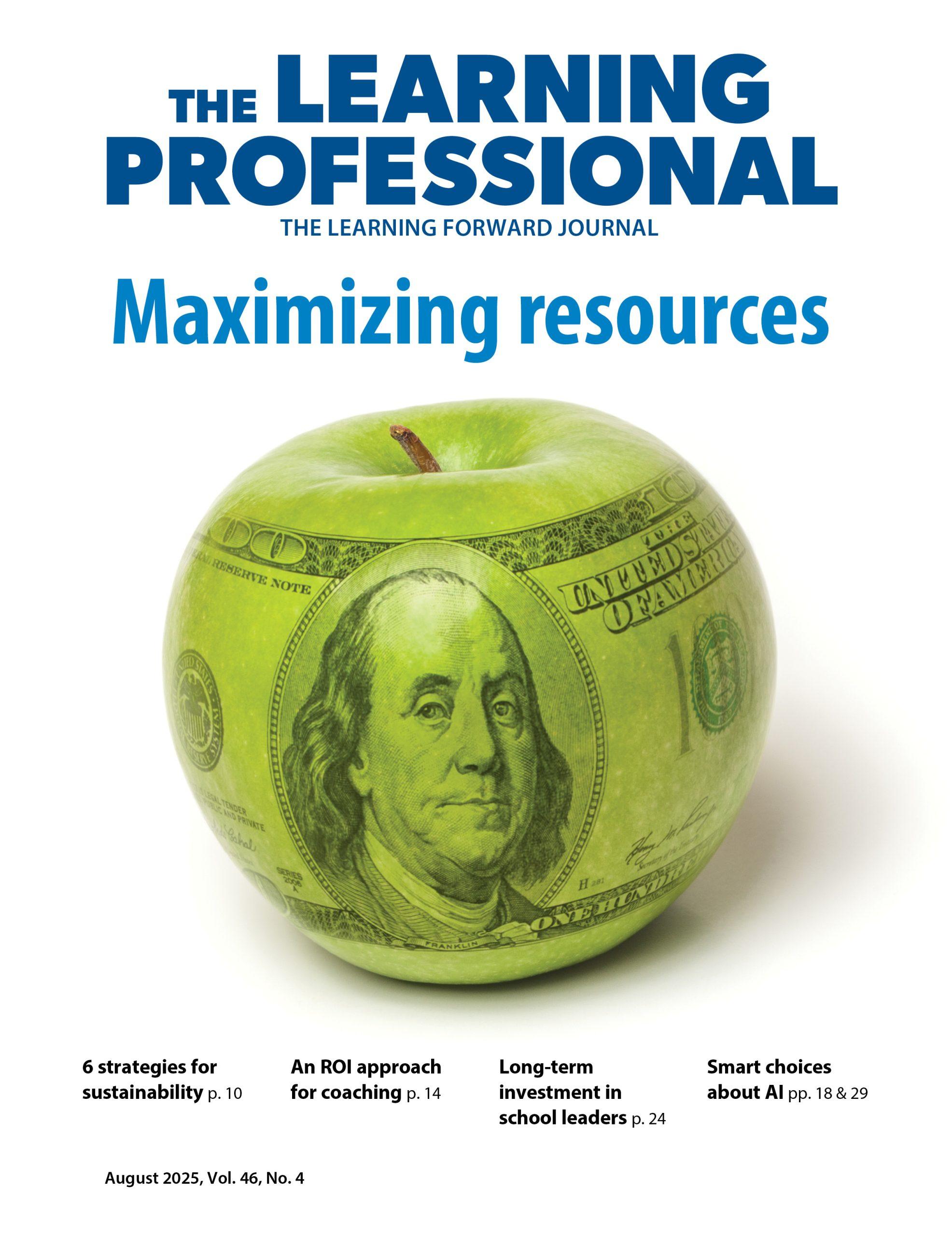TOOLS
A new paradigm for collaboration
By Rohini McKee and Michelle Bowman
Categories: Collaboration, Facilitation, Implementation, Learning communities, Online learning, TechnologyDecember 2020
Vol. 41, No. 6
Read the remaining content with membership access. Join or log in below to continue.
Sed ut perspiciatis unde omnis iste natus error sit voluptatem accusantium doloremque laudantium, totam rem aperiam, eaque ipsa quae ab illo inventore veritatis et quasi architecto beatae vitae dicta sunt explicabo. Nemo enim ipsam voluptatem quia voluptas sit aspernatur aut odit aut fugit, sed quia consequuntur magni dolores eos qui ratione voluptatem sequi nesciunt. Neque porro quisquam est, qui dolorem ipsum quia dolor sit amet, consectetur, adipisci velit, sed quia non numquam eius modi tempora incidunt ut labore et dolore magnam aliquam quaerat voluptatem.
About TxNSI and its partners
TxNSI is one of 30 improvement networks nationwide to receive the Network for School Improvement grant from the Bill & Melinda Gates Foundation. With this grant, we are able to connect with similar organizations, share and learn new strategies, and access high-quality technical assistance providers to deepen the work — a great benefit, especially as COVID-19 changes the needs of our students and families and the way we can support them.
Each member of the collaborative brings unique strengths to the partnership: Educate Texas serves as the network convener and provides analytical support, Learning Forward brings its expertise in professional learning and continuous improvement, and the Dana Center provides subject matter expertise and technical assistance around mathematics education and equitable student success.
Catalyst:Ed, which wrote A New Paradigm for Collaboration: Virtual Network Support based on the continuous improvement panel, draws on education leaders’ collective expertise to help them innovate, excel, and scale to deliver breakthrough results for all students. To accomplish this, Catalyst:Ed:
- Builds and activates diverse networks of expert talent vital to the health and impact of education organizations;
- Connects education leaders with the right expert support to spark innovation and build capacity;
- Creates shared resource pools that all organizations can benefit from; and
- Disseminates critical information to build knowledge, while fostering greater accountability and a focus on results.
Learn more at www.catalyst-ed.org. To read the report on which this tool is based, see bit.ly/3eSfa6y.
Categories: Collaboration, Facilitation, Implementation, Learning communities, Online learning, Technology
Recent Issues
MAXIMIZING RESOURCES
August 2025
This issue offers advice about making the most of professional learning...
MEASURING LEARNING
June 2025
To know if your professional learning is successful, measure educators’...
NAVIGATING NEW ROLES
April 2025
Whether you’re new to your role or supporting others who are new,...
LEARNING DESIGNS
February 2025
How we learn influences what we learn. This issue shares essential...













